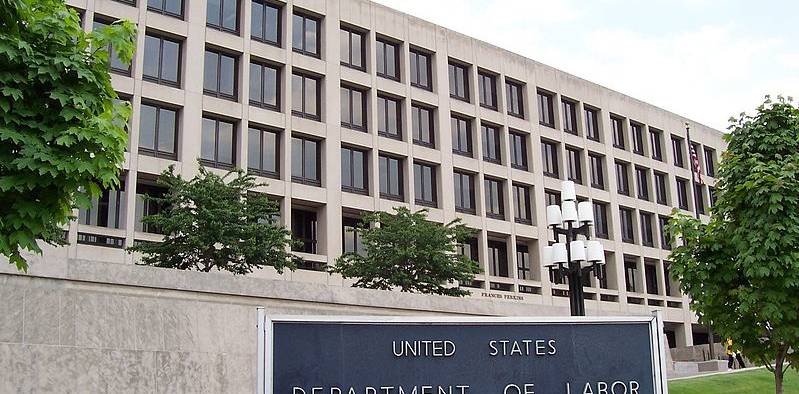‘Never Seen Anything Like It’: Economists Warn 6.6 Million New Jobless Claims Portend Unparalleled Crisis

“A portrait of disaster. Unemployment insurance claims for the last two weeks are mind-blowing.”
(By: Jake Johnson, Common Dreams) The U.S. Department of Labor announced Thursday that 6.6 million Americans filed jobless claims last week, a staggering and record-breaking surge in unemployment that comes as the coronavirus outbreak has completely shuttered large swaths of the economy and sparked mass layoffs nationwide.
The new figures bring the total number of unemployment claims for the month of March to 10.4 million, surpassing the number of jobs lost during the entirety of the Great Recession of 2007-2009. The 6.6 million new unemployment claims are more than double the previous record of 3.28 million claims set just last week.
“The labor market is contracting at the rate of one Great Recession per 10 days,” tweeted The Atlantic‘s Derek Thompson.
Heidi Shierholtz of the Economic Policy Institute said that in her two decades of studying the labor market, she has “never seen anything like” the spike in unemployment in that the U.S. has experienced over the last two weeks.
“This chart is a portrait of disaster,” Shierholz tweeted, pointing to a Labor Department graphic depicting the steep rise in jobless claims. “Unemployment insurance claims for the last two weeks are mind-blowing.”
This chart is a portrait of disaster. I have spent the last twenty years studying the labor market and have never seen anything like it. Unemployment insurance claims for the last two weeks are mind-blowing. 1/ pic.twitter.com/IoRYyraW0V
— Heidi Shierholz (@hshierholz) April 2, 2020
Shierholz said the unparalleled rise in jobless claims cries out for an immediate and sweeping response from Congress, which is officially on recess until April 20.
“Given the extraordinary deterioration of the labor market in a matter of weeks,” said Shierholz, “federal policymakers will absolutely need to come back and provide more desperately needed relief, and more support for the recovery once the lockdown is over.”
The multi-trillion-dollar stimulus package signed into law by President Donald Trump last Friday includes a one-time $1,200 direct cash payment to millions of Americans and a $600 increase in unemployment benefits for a period of four months, but those benefits have not yet reached the bank accounts of those who are eligible.
Around 70 million eligible Americans may not see stimulus payments for months because they don’t have direct deposit information on file with the Internal Revenue Service, according to the Brookings Institution.
“That’s now 10 million people who have no income and no [health] insurance at the beginning of a pandemic,” progressive radio host Benjamin Dixon tweeted after Thursday’s numbers came in. “Any politician NOT calling for a minimum of $2000/month [universal basic income] and nationalized healthcare will be complicit with the total collapse of our system.”
The youth-led Sunrise Movement said the rapid economic meltdown makes the case for a Green New Deal.
“We need an unprecedented economic stimulus,” the group tweeted. “We need a Green New Deal.”
10 million.
More jobs have been lost in the last two weeks than were lost in the entire Great Recession.
We need an unprecedented economic stimulus. We need a #GreenNewDeal.https://t.co/xG56mfYPZQ
— Sunrise Movement ? (@sunrisemvmt) April 2, 2020
Economists have warned in recent days that unemployment is likely to continue soaring in the coming weeks before the crisis begins to subside.
Miguel Faria-e-Castro, an economist with the Federal Reserve Bank of St. Louis, wrote in an analysis last week that 47 million workers could lose their jobs by the end of June, which would bring the unemployment rate to 32.1%. The unemployment rate at the peak of the Great Depression was 25%.
“These are very large numbers by historical standards,” wrote Faria-e-Castro, “but this is a rather unique shock that is unlike any other experienced by the U.S. economy in the last 100 years.”
Economist Jared Bernstein, a senior fellow at the Center on Budget and Policy Priorities, tweeted Thursday that “there’s a debate in Congress…about whether to quickly add more economic stimulus or wait and see what happens with what we’ve done so far.”
“I’m congenitally a careful, wait-and-see type, BUT NOT NOW!” Bernstein said.
“What should go in a phase 4 stimulus?” Bernstein continued. “Nutritional support (very helpful in last recession), state fiscal support (states facing huge demands amidst tanking revenues), more help to households through round 2 checks, [and increased unemployment insurance] beyond end of July.”
Quoting a famous scene from the movie “Jaws,” Bernstein added: “We’re gonna need a bigger boat.”















